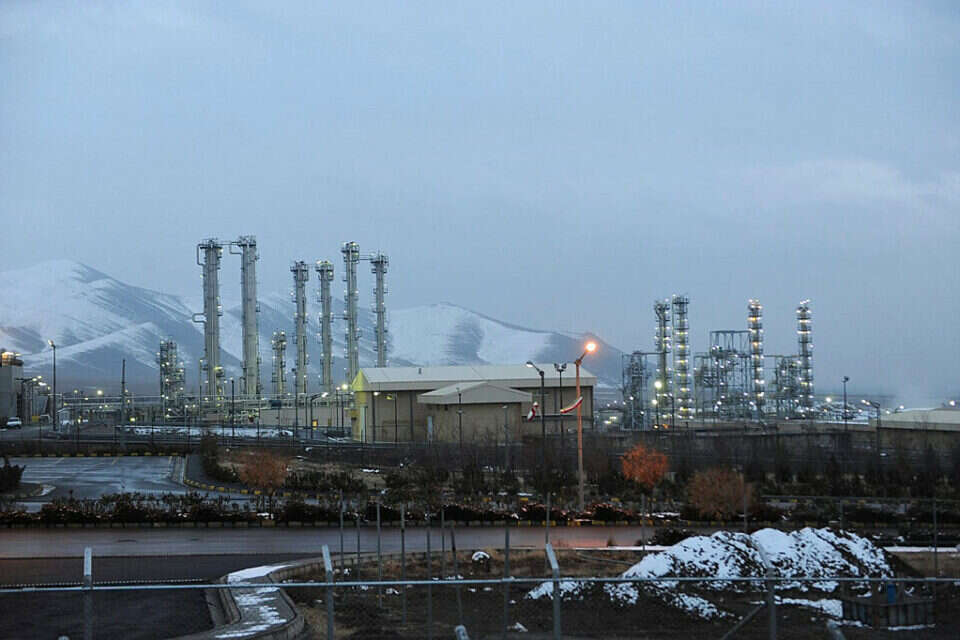Unless there is a dramatic change in the world's attitude towards Tehran in the near future, Iran could become a threshold nuclear country in the foreseeable future.
This does not mean that Iran will actually produce a nuclear bomb, but Tehran is doing everything in its power to acquire the knowledge and capabilities needed so that it can break into nuclear power in the minimum time possible once it makes the decision.
In recent months, Iran has made a significant leap in enriching uranium to a high level of 60% or more, the transition from which to enrichment at a military level of 90% is relatively quick and uncomplicated to carry out.
It is estimated that if the Iranian government wants it, and no one gets in its way, within a few weeks it will have enough enriched material for one nuclear bomb.
But enriched nuclear material is not enough for a nuclear bomb, and Iran will also have to complete the development of the nuclear facility itself, conduct experiments and of course complete the long-range missile project that can carry the same nuclear facilities.
It is estimated that if there are no delays along the way, it will take Iran one to two years to complete these processes.
Iran pulls time
Israel notes, however, that Iran's nuclear pursuit is now "creeping up", step by step, so as not to upset Western countries so much that they decide to take steps that could harm the plan, such as imposing heavy economic sanctions or a credible threat of military action.
To the displeasure of the United States, the resumption of talks on the nuclear deal is currently almost entirely in the hands of Iran, which is facing difficulties and is time-consuming. Years later, Iran will agree to quickly return to the previous nuclear deal, and even agree to discuss a complementary and improved agreement with the West.
In practice, the removal of some of the heavy sanctions on Iran with the entry of the Biden administration into the White House about a year ago - managed to reassure the Iranian economy sufficiently to remove the fear of internal unrest that threatened the regime's stability.
The U.S. is frustrated by the situation, as after months of procrastination, Washington has estimated that the regime change in Tehran last August will lead to a resumption of talks in a short time, but in practice, more than two months have passed since Raisi's appointment.
Despite US dissatisfaction, the Biden administration is reluctant to impose further sanctions on Iran, certainly not harsh ones, and the US now finds itself without an alternative plan of action, depending on the decisions made in Tehran.
In Israel, they are very concerned about the current state of affairs, and define it as "shuffling."
Recently, there have also been some encouraging voices in Jerusalem that the United States is paying close attention to Israeli assessments and concerns, but the frustration is great in the face of the fact that Washington does not seem to be taking steps, certainly not sharp, to put pressure on Iran to return to the nuclear deal.
Delay - and no more
Not to be mistaken, Israel believes that the nuclear deal to which the US wants to return is bad in the full sense of the word, as it allows Iran to get its hands on a nuclear power in about a decade in authority and authority, but the current situation, without agreement and sanctions, is worse than the bad deal.
According to foreign publications, Israel has taken several steps to disrupt and delay the Iranian plan, including hitting the electricity system at the Netanz enrichment facility.
But it is estimated that the operation delayed the Iranian plan by a few weeks or months and that is not enough to stop the Iranian nuclear program.
Against this background, after years in which the IDF's operational plans to attack Iran were drained due to the signing of the nuclear agreement in 2015, the IDF has in recent months begun preparing new operational plans to address the threat from the East, and even anchored a budget in agreements with the Ministry of Finance. .
The problem is that this is a complex and complicated operational plan, the effectiveness of which is also questionable, and until it is feasible it will take quite some time, during which Iran can already reach significant capabilities in the nuclear field.
Israel is still hoping for a combined, diplomatic, economic and operational move that will put pressure on the Tehran administration and at least bring it back in the first phase of the previous agreement, so that Israel can gain time to complete preparations for the attack.
At the same time, Israel plans to continue its efforts to motivate the West, and especially Washington, to act more decisively to stop Iran's nuclear race.

